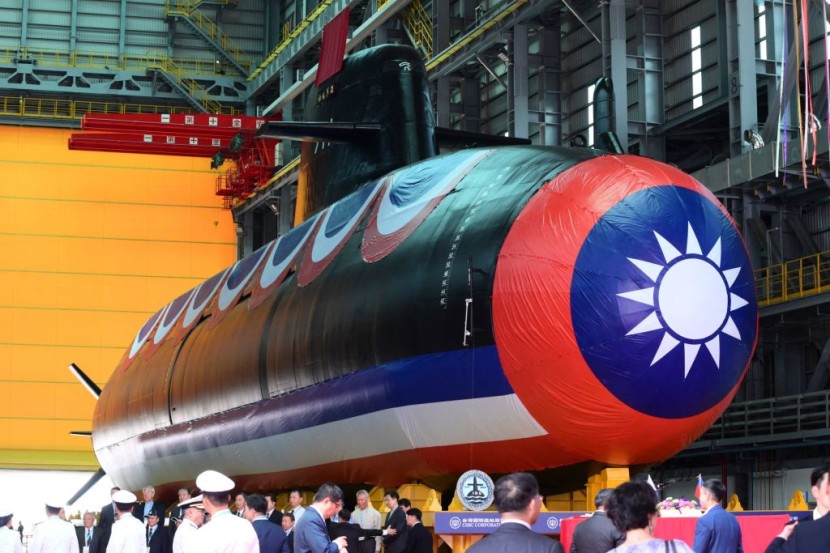
Taiwan unveiled its first domestically developed submarine on Thursday, marking a significant step in a project intended at bolstering the island's defense and deterrence against the Chinese navy.
However, the submarine will not enter service for another two years.
Taiwan's First Domestic Submarine Haikun
Taiwan, which China claims as its own territory, has made the indigenous submarine program a critical component of an ambitious project to modernize its armed forces, while Beijing conducts nearly daily military exercises to assert its sovereignty, as per Reuters.
On Thursday, in the southern city of Kaohsiung, President Tsai Ing-wen, who initiated the plan upon her 2016 inauguration, displayed the first of eight new submarines.
President Tsai Ing-wen launched the vessel - named Haikun, which means "mythical sea creature" - into the harbor of Kaohsiung, Taiwan's southern port city, where seaworthiness testing will be conducted in the coming weeks.
If everything proceeds according to plan, the first submarine should be available for delivery by the end of 2024, and the second is scheduled to be completed by 2027. The first submarine came with a hefty price tag of $1.54 billion, but for Taiwan's government, defending the island and its outlying territories against China's navy is worth the expense.
The submarines could keep China's navy from encircling Taiwan and cutting the island off from outside resources, a move China would be anticipated to make if it were to attack or invade the island. The Taiwanese government stated that the submarines could prevent China from circumventing the First Island Chain, an imaginary defensive line connecting Taiwan, Japan, the Philippines, and Indonesia.
The submarines are a component of Taiwan's comprehensive deterrence strategy. Taiwan's goal is to make an assault so costly that it would not be viable, despite the fact that its military is considerably smaller than China's. The government intends to construct eight diesel-powered submarines to augment Taiwan's extant fleet of two 1980s-era Dutch models and a World War II-era US training submarine.
More Submarines to Come
According to Aljazeera, the new models will be equipped with a Lockheed Martin Corp combat system and MK-48 heavyweight torpedoes manufactured in the United States. Another one is in production at present.
Taiwan intends to ultimately operate a fleet of ten submarines, including two older vessels manufactured in the Netherlands, and arm them with missiles. Admiral Huang Shu-kuang, chief of the domestic submarine program, told reporters last week that the objective was to thwart any attempt by China to encircle Taiwan for an invasion or impose a naval blockade.
Shu-kuang added that it would also purchase time until US and Japanese forces arrived to assist Taiwan's defense. Taiwan's leaders have long prioritized the construction of their own submarines, but the program has accelerated under Tsai, who has increased military expenditures to nearly double its budget during her tenure.
China has not yet officially responded. However, in an article published earlier this week, Taiwan was described as "daydreaming" and the plan as "an illusion" by the state-run Global Times. It also asserted that China's military had erected a multidimensional anti-submarine network around the island.
Taiwan's fleet of ten submarines pales in comparison to China's, which reportedly consists of more than 60 vessels, including nuclear-powered assault submarines, and is growing. However, the island has long pursued an asymmetric warfare strategy in which it seeks to construct a more nimble defense force to combat a larger and better-resourced foe, BBC reported.
The submarines could "help Taiwan's relatively small navy take the initiative against China's mighty navy" by conducting "guerrilla-style warfare with their stealth, lethality, and surprise capabilities," according to William Chung, a Taiwanese military researcher at the Institute of National Defense and Security Research.
Specifically, they could help defend the straits and channels that connect the so-called "first island chain," a network of islands that includes Taiwan, the Philippines, and Japan and is viewed as a potential battlefront in the event of a conflict with China.








